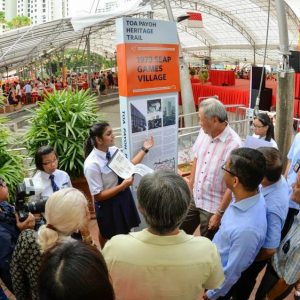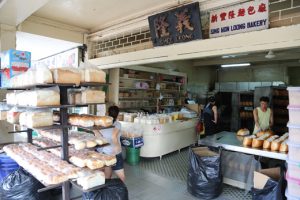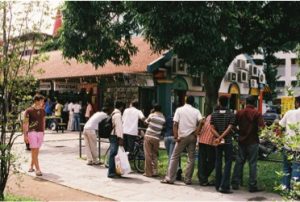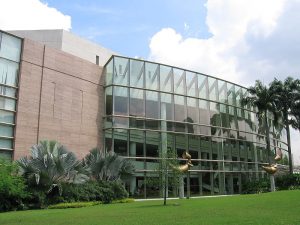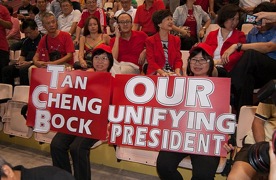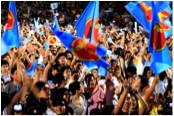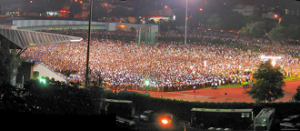Heritage-Making in Singapore
Memo #397 By: Kelvin E.Y. Low – kelvinlow [at] nus.edu.sg In 2008, the Urban Redevelopment Authority (URA) of Singapore announced that its conservation program would extend beyond buildings to include other landmarks and structures such as bridges, pavilions, and towers that were emblematic of the nation’s history and heritage. Such conservation efforts were to be […]
Intangible but not Insignificant: The Importance of Safeguarding Cultural Heritage
Memo #264 By Sharon Lim – sharon.lim [at] alumni.ubc.ca In 2010, Old Places was the highest-rated documentary on Singaporean television. This speaks to the appeal of Royston Tan’s documentary—structured around the reminiscences of ordinary Singaporeans, with on-screen images of places and material objects that they feel are slowly disappearing from the Singaporean cityscape. Narrators share […]
Migrant Labour in Asia: Singapore’s Recent Riot
Memo #260 By Wajihah Hamid – wajihah.hamid [at] gmail.com Riot, angry mob? Surely unheard of in Singapore? But on Sunday, December 8, 2013, a fatal traffic accident involving a migrant worker in Singapore’s Little India sparked an angry reaction from the area’s low-waged migrant workers that morphed into a riot. Temporary labour migration is the […]
The Role of the University in Singapore (Video Interview with Dr. Philip Holden)
Memo #179 – The role of the university in Asia has changed over time. Many Asian universities were colonial institutions, and then incubators for nationalist thought. In contemporary Asia, they have key economic functions, attracting foreign students and research capital, often in state capitalist societies.
Singapore’s Divisive Seventh Presidential Election
Memo #101 – Singapore’s recent presidential election (PE) was unusual as it was a highly politicized contest for an apolitical post. Unlike the previous two uncontested PE, this PE saw four candidates vying to be the country’s largely ceremonial, highly paid head of state. While three presidential hopefuls were former People’s Action Party (PAP) members, one was an opposition candidate in the general election (GE) held four months ago. On August 27, 2011, the government favoured candidate, former Deputy Prime Minister Dr. Tony Tan was elected the seventh president by a razor thin margin.
Turn of Tide: Singapore’s Watershed Election 2011
Memo #82 – On May 7, 2011, 2.06 million Singaporeans cast their votes and returned the People’s Action Party (PAP) to power. Most parties would be happy with the PAP’s 60.1 per cent vote and 81 out of 87 seats. But the result was the party’s worst performance since 1963, a far cry from its 75 per cent vote share during its heydays in the 2001 general election (see Figure 1). Singaporeans were disaffected and voted two cabinet ministers and a candidate slated to be speaker of the House out of office. In an election post-mortem, both minister mentor Lee Kuan Yew and senior minister Goh Chok Tong resigned from the cabinet.
Pre-Election Singapore Clamps Down on Social Media
Memo #58 – Social media including Facebook and microblogging sites such as Twitter galvanized the street protests in Tunisia and Egypt. Fears of contagion have led China to censor ‘Egypt’ on its microblogging sites. As Singapore gears up for its general election, due by February 2012, its long-serving People’s Action Party (PAP) government is increasingly nervous over the impact of social media and is finding ways to muzzle it.
